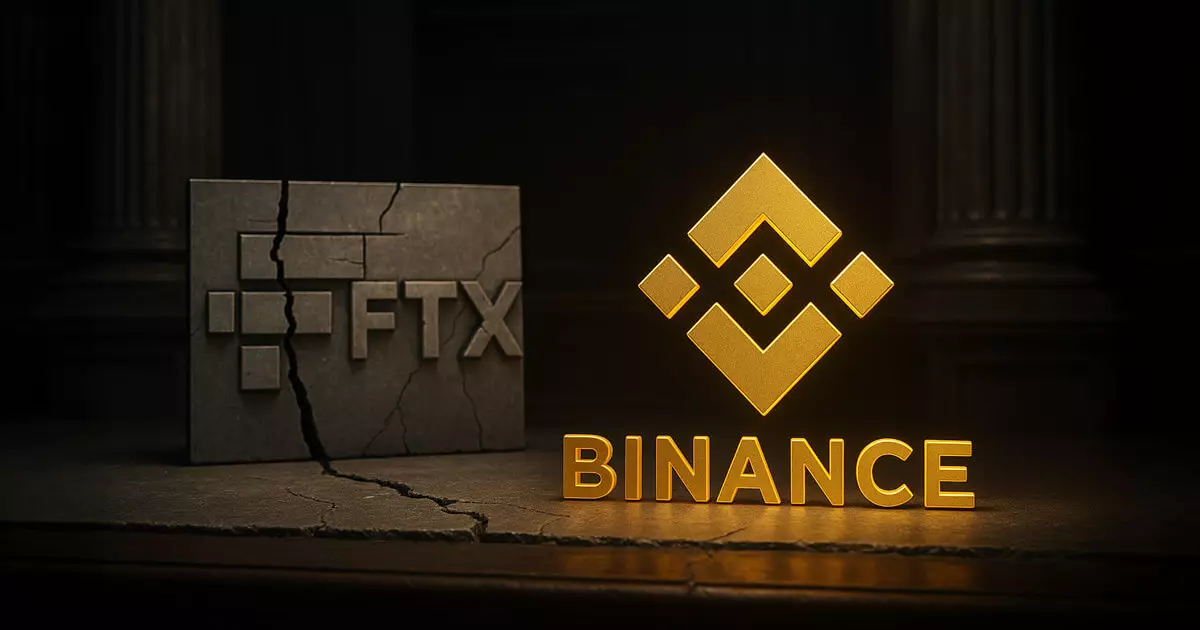In the midst of a tumultuous financial landscape, the alleged legal mischief surrounding the $1.76 billion lawsuit filed by FTX against Binance should raise eyebrows across the business and legal sectors. Binance’s decisive motion to dismiss the lawsuit not only questions the jurisdiction of U.S. courts over foreign entities but also illuminates a vital aspect of today’s interconnected financial world: does jurisdiction automatically extend over international business entities simply because of an operational footprint? By categorically denying the jurisdiction under which the lawsuit operates, Binance expertly shifts the narrative back to FTX’s questionable legal grounding, suggesting that their case is more akin to stretching the thin fabric of legal precedent rather than solidifying any legitimate claims.
Speculation vs. Fact: The Inadequacies in FTX’s Claims
Fundamentally, the accusations made by FTX appear to falter upon rigorous examination. Binance contends that the lawsuit hinges on unfounded allegations of insolvency, citing FTX’s inability to demonstrate that it was, indeed, on the brink of financial collapse during the pivotal July 2021 transactions. To insinuate that a company was wildly insolvent two years prior to its collapse while being actively traded, and simultaneously not prove it, speaks volumes about the credibility of FTX’s claims. The exchange challenges conventional wisdom that assumes insolvency without robust evidence, prompting a necessary reevaluation of how financial losses are legally framed and claimed.
The Danger of Misplaced Blame: Twitter Does Not Cause Bank Runs
The most sensational narrative that has arisen out of this saga concerns Changpeng Zhao’s social media activity and its supposed role in inciting panic among FTX’s investors. This aspect of the lawsuit borders on the absurd. Binance adeptly argues that Zhao’s statements were factual and did not mislead the public. Rather than being the puppeteer behind a “bank run,” Zhao’s transparency about market risks revealed by FTX’s practices appears to be the catalyst for investor concern. Any financial landscape’s volatility is often exacerbated by the underlying problems of deceit, as seen in this case through FTX’s eventual implosion. Blaming Binance for merely discussing market realities disregards the real failures at the heart of FTX’s operations.
A Shift in Focus: Market Dynamics Over Legal Harassment
Moreover, the argument that Binance’s liquidation of FTT was driven by malice is fundamentally misplaced. Emerging from an industry still grappling with trust issues, Binance acted prudently within its risk management framework, rather than out of spite towards a competitor. The sheer unpredictability surrounding FTX’s eventual demise offered no safe harbor for Binance, echoing cautious sentiments that every trader knows too well: safeguarding one’s interests is paramount when faced with market intricacies. In a world constantly swirling with rumors, hyperbole, and legal threats, the true villain may not be a competitor, but rather the pervasive naivety surrounding corporate ethics and transparency.
The implications of Binance’s dismissal highlights a critical point in regulatory frameworks across borders, emphasizing the importance of rigid legal standards rather than opportunistically exploiting jurisdictional loopholes. As this legal battle unfolds, it continues to bring to light the delicate balance between competition, transparency, and accountability in an increasingly convoluted global market.

